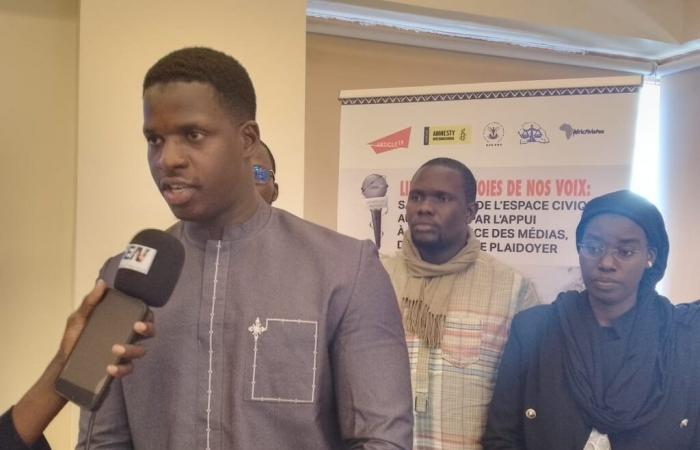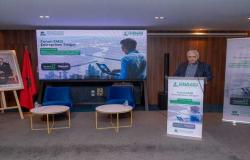The NGO Article 19 held a two-day workshop in Dakar on January 16, 2025. This conclave was dedicated to training journalists and media professionals on digital and physical security. It is part of the “Freeing the Ways of Our Voices” project, an initiative aimed at combating the repression of civic space in Senegal. The project, set up by Article 19 Senegal and West Africa in collaboration with Africtiviste, aims to strengthen democracy and promote respect for human rights through the opening and securing of civic space.
“We are here today as part of a project entitled “Liberating the channels of our voices”. “This project, funded by Open Society – Africa (OSIWA Senegal), aims to promote the opening of civic space “, declared Mateuw Mbaye, program manager at Article 19, at the start of the discussions. This program aims to support the media in improving their security practices in order to better protect themselves against growing threats , particularly in the area digital.
Mr. Mbaye recalled that the workshop is part of an ongoing study aimed at assessing the vulnerability of the media to digital security. Although many digital structures have been put in place to counter certain threats, there is an urgent need to build the capacity of journalists and media professionals on the use of security tools and practices. “This workshop is part of a study that we are finalizing to assess the vulnerability of the media in terms of digital security. Although some media have already put in place measures to protect themselves, it is crucial to strengthen these tools and these practices in order to better defend against new forms of digital threats,” he explained.
During the workshop, Mateuw Mbaye also addressed the dangers of social media and cyber threats, particularly cyberbullying. He stressed that journalists and other media actors are increasingly exposed to attacks aimed at stealing their personal data, undermining their physical integrity or manipulating crucial information.
“There are multiple online threats: cyberbullying, phishing techniques and other attacks carried out by criminals to steal data or access sensitive information. As actors of civil society, we must better equip the media to help them protect and defend themselves against these risks,” he said.
The workshop also offered practical advice for improving the safety of journalists online. Mateuw Mbaye stressed the importance of choosing strong passwords, warning that many people continue to use simple information like their last name or date of birth, which are easy to hack. “Increasingly, people are choosing weak passwords, such as last names or dates of birth. These passwords are easily accessible and expose users to risk,” he warned.
To counter this scourge, he suggested safer solutions, such as using special characters in passwords and installing antivirus software on computers. Additionally, he recommended the use of virtual private networks (VPNs) or secure browsers like Tor, which can better protect the privacy of journalists and their information.
“There are effective solutions to secure your data online, such as the use of VPNs or secure browsers. These tools allow journalists to better protect their privacy and avoid being exposed to digital attacks,” he said. concluded Mateuw Mbaye.






